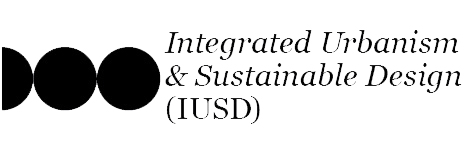The IUSD Lab aims at serving as a platform for interdisciplinary and intercultural academic exchange. IUSD-Lab will establish itself as a joint, cross-institutional center at Stuttgart University and Ain Shams University, involving several faculties and departments within these universities. It will closely cooperate with a broad range of partners from different academic, governmental and private institutions around the world. The IUSD-Lab provides access to the megacity of Cairo and economic hub of Stuttgart with their world-class networks of industrial and research institutions. It supports the implementation of pilot projects in close cooperation with its international network of research, teaching and business partners. The results of teaching activities are contributing to the lab’s research activities and vice versa. Different forms of outputs, such as events and publications are used to disseminate the Lab’s work.
Vision
The vision of the IUSD Lab is to jointly develop the IUSD program into a self-sustainable German-Egyptian center for graduate teaching, research, training and dialogue in Stuttgart and Cairo - the “Integrated Urbanism and Sustainable Design Laboratory” (IUSD-Lab). Its thematic focus will be on sustainable urban development of Egypt and the MENA region in close relation to international approaches.Mission
The aim of situating the IUSD program within the framework of the IUSD-Lab is to pool competencies in sustainable urban development in order to become self-sustainable through external research funding and funding of partners after the end of the initial period of funding by DAAD and the supporting ministries. It also gives a proposal on engaging former IUSD graduates within the research activities of the IUSD LAB.Scope
The IUSD-Lab will be hosting research and practice that deal with spatial and subject related fields. It cooperates with and advises both public and private organizations in addition to civil society organizations developing research-based implementation strategies and projects in thematic focus and regional focus-
Energy-Efficient, Sustainable Building Design and Construction in Egypt 2013-2016 Funded by: Academy of Scientific Research and Technology Egypt
-
Development Priorities in Informal Areas: Planning, Realization and Local Perceptions 2014-2016 In Cooperation with TU-Berlin, Prof.Dr. Philip Misselwitz Funded by: GERF
-
The International workshop on Cultural heritage and Livelihood of Bedouins of South Sinai
By IUSD Lab Cairo and Lincoln School of Architecture, "21-28 October 2017"
Funded by Newton-Mosharafa researchers links fund
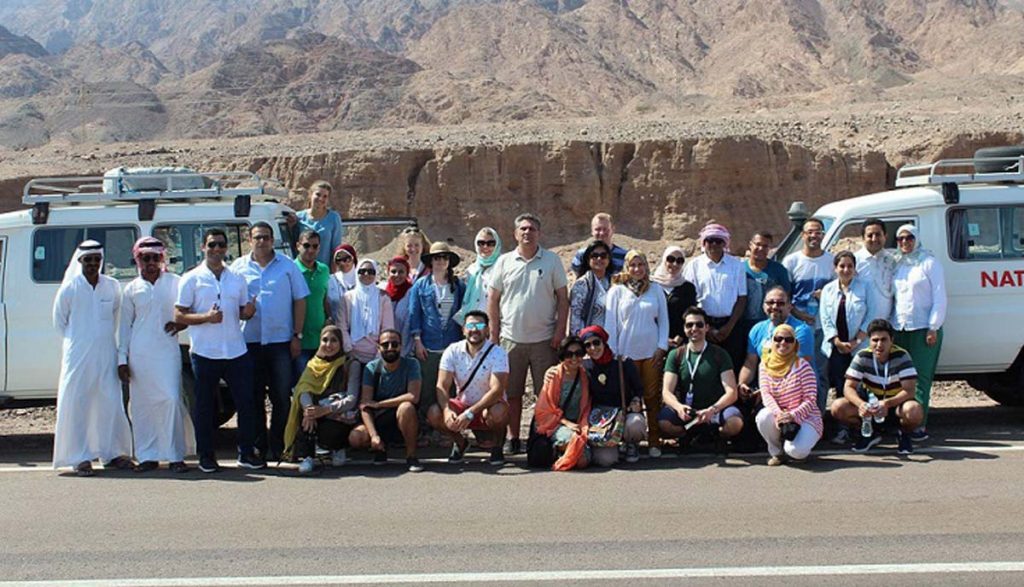 In collaboration with the Lincoln School of Architecture and the Built Environment, University of Lincoln, UK; IUSD Lab organised an International workshop on cultural heritage and livelihood of Bedouins of South Sinai under the theme of "Investigating sustainability approaches of local resilient community development in Nuweiba, South Sinai” between 21-28th of October 2017. The workshop was funded by the Newton-Mosharafa researchers links fund. For a week, 40 participants from both Egypt and the UK were engaged in an interdisciplinary dialogue with the local community of Nuweiba towards developing a framework for community resilience. Throughout the workshop, participants conducted field visits and community focus groups to investigate potentials of the community resilience and share ideas for social, cultural and environmental sustainability practice and policies. During the workshop, IUSD intake VI also had the opportunity to share knowledge and experience with the workshop participants.
In collaboration with the Lincoln School of Architecture and the Built Environment, University of Lincoln, UK; IUSD Lab organised an International workshop on cultural heritage and livelihood of Bedouins of South Sinai under the theme of "Investigating sustainability approaches of local resilient community development in Nuweiba, South Sinai” between 21-28th of October 2017. The workshop was funded by the Newton-Mosharafa researchers links fund. For a week, 40 participants from both Egypt and the UK were engaged in an interdisciplinary dialogue with the local community of Nuweiba towards developing a framework for community resilience. Throughout the workshop, participants conducted field visits and community focus groups to investigate potentials of the community resilience and share ideas for social, cultural and environmental sustainability practice and policies. During the workshop, IUSD intake VI also had the opportunity to share knowledge and experience with the workshop participants.
-
Impulse workshop on the topic of Green Infrastructure considering Integrated Urban Water Management in Stuttgart
By IUSD Lab Stuttgart and IUSD Lab Cairo, "10-12 December 2014" Funded by DAAD
In a two-day workshop the IUSD Lab defines research fields along and around the topic of water sensitive green infrastructure, taking into account environmental, socio-economic and technological challenges in order to prepare coordinated proposal activities. During the workshop upcoming funding options (with and without focus on the MENA region) were discussed with the aim to initiate consortia covering the various aspects relevant for the topic.
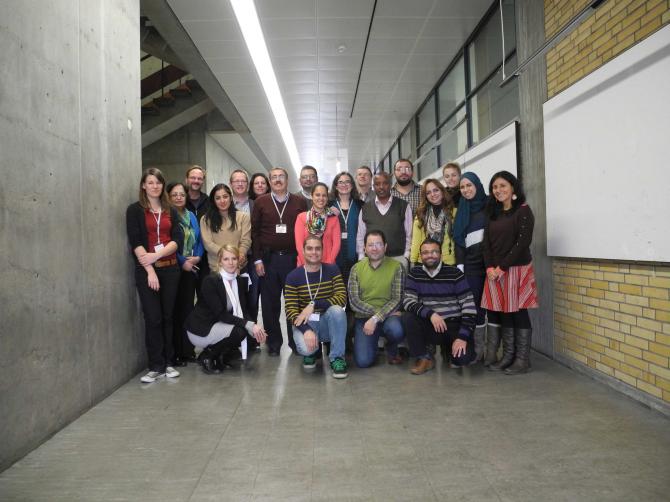
-
Towards a Sustainable Development of the Coastal zones in Tunisia
Case Study of Lella Hadhria, Island of Djerba "22nd Sept - 3rd OCt 2014"
The Island of Djerba is a specific example of a human community adapting to its environment and has been recognized by the UNESCO as "Patrimony of Humanity“just recently. Since the 1960’s the island has been witnessing intensive transformation due to the mass tourism development. The rapid urbanization of the littoral strip with hotel complexes, golf courses and marinas threatens the vernacular assets with a risk of loss of the island’s identity. Meanwhile, the island of Djerba is in need of development, but a development in a reasoned way taking into account its historic, cultural and ecological specificities.A previous explorative Workshop from students of the Ain Shams University (December 2013) served as a preview into Djerba´s social and urban dynamics, full of contrasts and paradigms. Building up on the gained knowledge, the University of Stuttgart and the University of Carthage joined their egyptian partner for the sequel, hierby exhibited Summer School. The site of Lella Hadhria, a pristine lagoon ecosystem and home to a rich fauna and flora, is threatened by development plans for a hotel complex. Through an interdisciplinary approach, bringing together architecture, urban planning and landscape architecture professionals and students, the summer school contributed to a spirit of interdisciplinary cooperation. A final exhibition to the Tunisian public aimed to provide a wide range of scenarios for the future development of Lella Hadhria, based on a previous analytical research, experience and personal observations within a limited timeframe of this Summer School.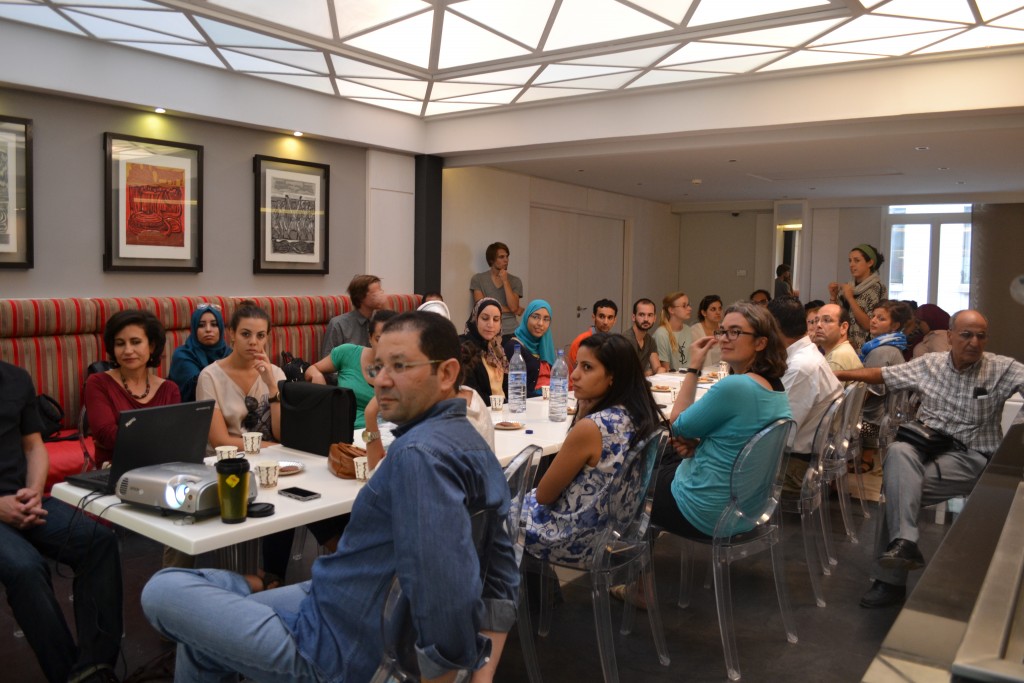
-
Fact-Finding Mission in Tunis "24-26 March 2014"
-
Water Sensitive Urban Design in New Cairo Workshop
IUSD Lab - Ain Shams University, Cairo – Egypt "03.04.2014 to 07.04.2014"
This workshop was done as a part of the ‘IUSD Salon’ events’ series jointly organised with Ain-Shams University and Stuttgart University in collaboration with experts in landscape architecture, biodiversity, water, Talaat Mostafa group, National Water Research Centre and Desert Research Centre.
The main objectives of this event were to open a new research field, understand the current situation of landscape in Cairo, identify different stakeholders connected to water sensitive urban design, know different contributions of governmental institution, NGOs and public sector towards the topic and discover the needed points for further research linked to water sensitive landscape. The workshop involved visits to several governmental and institutional meetings to get an understanding of how these institutions act toward water consumption, irrigation and agriculture systems, and to get to know their previous studies, current interests and future proposed projects. Numerous field visits and tour around greater Cairo region and its fringes were undertaken by the study group, to acquire information on the landscape patterns of different areas in accordance with their contextual perspective, which the study group later analyzed and classified its results.
Examples on how communities existing on the desert outskirts of Cairo deal with water sensitive urban design included Al Rehab and Madinaty gated communities. Outcomes of this workshop was the fruitful discussion of the problem and preliminary research topics, the primary trial for mapping landscape patterns in Cairo, an overview on the stakeholders involved, highlighting best practices according to different climates and an initiative to create an Atlas for Cairo's landscape based upon the proposed researches.
-
Live Projects: Laboratories for Change? Towards sustainable teaching methodologies in applied urban settings
IUSD Lab - Stuttgart University, Stuttgart – Germany "12.12.2013 – 13.12.2013"
Funded by: DAAD Transformation Partnership, Foreign Office of Germany
This workshop was co-hosted by the Integrated Urbanism & Sustainable Design Lab (IUSD-Lab) at the University of Stuttgart and the Integrated Urbanism & Sustainable Design Lab (IUSD-Lab) at Ain Shams University Cairo. It is organized by the Department of International Urbanism (SI), in cooperation with the IUSD-Lab at Ain Shams University. The workshop is supported by DAAD and financed by the Foreign Office of Germany (Auswärtiges Amt).
The initiation of this bi-cultural workshop is driven by a belief that students who become involved in well organized and carefully framed socially engaged projects during their studies will continue to pursue socially responsible approaches in their professional lives. The workshop seeks to contribute to the wider debate for a joint development of a systemization of tools and teaching methodologies for Live Projects at German and Egyptian Universities.
‘Live Projects: Laboratories for Change?’ addressed a variety of questions in its sessions including but not limiting to the teaching and learning methodologies within the academic programs and its pedagogy, the long-term sustainability of Live Projects, and their impact on local communities and the impact of regional and social differences across different contexts. Together with several guests they contributed to the wider debates regarding professional practice as well as sharpening teaching methodologies in both university contexts and beyond, which will benefit the next generations of students. The focus on Live Projects is driven by the belief that students who become involved with well-organized and carefully framed socially engaged projects during their studies will continue to pursue socially responsible approaches in their professional lives. These approaches are needed in the German, Egyptian and Tunisian context, even though the reasons are different.
-
Towards a Neo-Vernacular Architecture: International Spring School Siwa 2013
By IUSD Lab Cairo
The spring school aimed to find possible ways to deal with the needs and demands of the people and to develop building practices and design solutions according to them.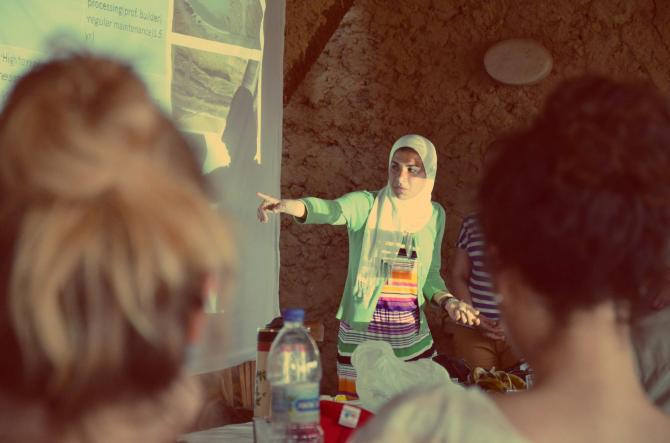
Presentations and conferences
ASU has presented in numerous presentation with the aim of promoting an integrated planning approach for sustainable urban communities and communicating the importance of adopting interdisciplinary approaches and opening up with other scholars in different academic disciplines. This is in addition to introducing the concept of integrated planning for various members of the architecture and urban planning community in Egypt. Some of the objectives of these public presentations were to promote a shift from the traditional fragmented planning approaches to a more integrated planning approach, to emphasis the importance of adopting an interdisciplinary approach to achieve such sustainable communities, to introduce the approach of integrated planning to sustainable urban community based on interdisciplinary solutions which combine ecological and social approaches to engineering to design and planning of landscapes, cities and buildings and to emphasis the active engagement of academia with public sector, private sector and civil society to achieve sustainable development.- Tunis Conference on Cairo 2050, 5 Dec 2013
- ASU Annual Conference 23 April 2014
- Supreme Council of Culture, 21 May 2014 ,Joint presentations with USTUTT
- Transsolar Academy Workshop in Stuttgart, 25 February 2014
- International Topos Award conference in Munich, 10 September 2013
IUSD Lab offers extra-curricular activities and training courses from the IUSD M.Sc. programme in cooperation with external partners. It functions as a complementary education tool to already practicing professionals and as an answer to a growing demand of part-time qualification for professionals. Also, it offers seminars for alumni of IUSD M.Sc. and IUSD PhD programmes, to develop their networks and further their careers.
Available modules
1-Summer and Spring schools, which are already in effect since the establishment of the IUSD master programme with already two schools have been held in September 2011 in Cairo related to urban planning and management and another held in April 2013 in Siwa related to architecture and climate design.
2-Training Workshops that the IUSD-Lab can either organize solely or in cooperation with another partner for a period of maximum three days.
3-Hosting Workshops, in which the IUSD-Lab would only be responsible for place-provision, while the organization and management of the workshop will be the responsibility of another partner.
4-Crash Courses, with a period of minimum 5 days to a maximum of two weeks, in a selected topic or specialization in which one or more tutors can be involved from ASU as well as other institutions. In this case, a certificate of attendance shall be given as well as possible credit transfer (ECTS) to other international university can be done in case of postgraduate students).
5-International Training Programs (ITP), can be organized as well for a duration of six to eight weeks and targeting more professional training either in construction, management, etc…
6-Organizing Conferences and Symposium. Contact Cairo
IUSD Office,
Ain Shams University, Faculty of Engineering,
1 El-Sarayat Street, 11517 Abbasiya, Cairo, Egypt
Email: iusd@eng.asu.edu.eg
Tel: +20 2 26830416
Contact Stuttgart
IUSD Office,
University of Stuttgart, Faculty of Architecture and Urban Design,
Keplerstr. 11, 70174 Stuttgart, Germany
Email: info@iusd.uni-stuttgart.de
Tel: +49 71168583370
